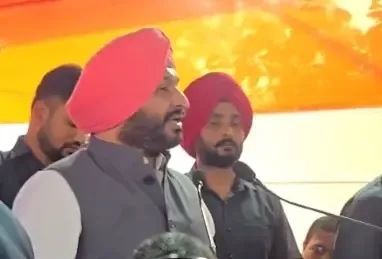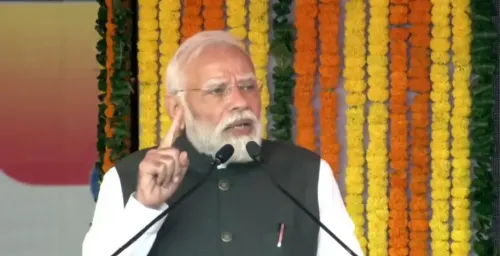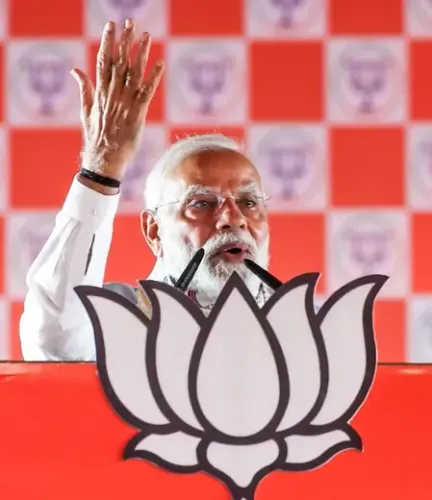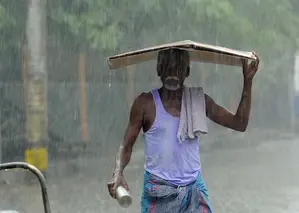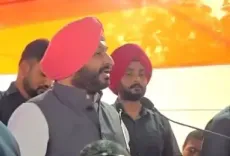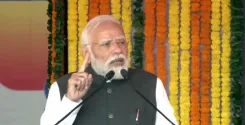Muslim Representation in Government Jobs Rises to 9.5% Under PM Modi: Rajasthan BJP
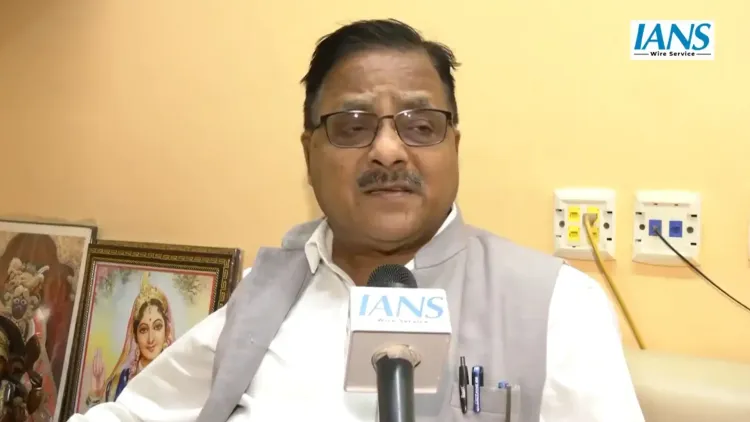
Synopsis
Key Takeaways
- Muslim representation in government jobs increased to 9.5% under PM Modi.
- Congress historically treated Muslims as second-class citizens.
- Waqf properties need reforms for better community benefits.
- 31% of Muslims benefited from PM Awas Yojana.
- New reforms aim to uplift poor Muslims.
Jaipur, April 16 (NationPress) Rajasthan BJP in-charge Radha Mohan Das Agarwal on Wednesday condemned the Congress Party for viewing the Muslim community merely as a vote bank, stating that the representation of Muslims in central government jobs has surged from 5 percent to 9.5 percent under Prime Minister Narendra Modi.
“In the span of 11 years of PM Modi and BJP governance, the share of Muslims in central government jobs has risen significantly from 5 percent to 9.5 percent. The Congress has historically treated Muslims as second-class citizens, while the BJP aims to ensure they live with dignity and self-respect as Indians,” Agarwal stated at a press conference.
He remarked that during the tenure of the Congress, Muslims were predominantly restricted to occupations like cobblers, painters, tailors, band players, and puncture repairers.
Moreover, he highlighted the issue of resource distribution, contrasting the former Prime Minister Manmohan Singh’s claim that Muslims have the primary claim to the country's resources with PM Modi’s strategy of supporting the impoverished, regardless of caste or religion.
Agarwal claimed that the Muslim community, which comprises 15 percent of the population, has seen benefits of 31 percent in PM Awas Yojana, 37 percent in Ujjwala Yojana, 36 percent in Mudra, 42 percent in Jan Dhan Yojana, 33 percent in PM Kisan Samman Nidhi Yojana, and 70 percent in Pradhan Mantri Rojgar Srijan Guarantee Yojana.
On the matter of Waqf properties, Agarwal referenced religious texts that advocate for transparency in financial dealings and questioned the undocumented transfer and utilization of Waqf land.
He accused vested interests of misusing Waqf properties intended for the benefit of underprivileged Muslims.
Referring to the 2006 Sachar Committee report, he claimed that at that time, there were approximately 4.5 lakh Waqf properties covering 6 lakh acres, which should have generated an annual income of Rs 12,000 crore. However, only Rs 163 crore was reported, indicating large-scale embezzlement.
He further stated that by 2025, Waqf land had expanded to nearly 37.94 lakh acres, yet the income had only marginally increased to Rs 166 crore, significantly below the estimated potential of Rs 1 lakh crore annually.
Agarwal alleged that both religious and Congress leaders have historically profited from these assets, and the new Waqf reforms are encountering resistance from those with vested interests.
Citing a report from the Karnataka-Minority Commission, he noted that out of 54,000 Waqf properties in the state, 29,000 have been encroached or misappropriated.
He also implicated several Congress leaders, including Mallikarjun Kharge, CK Jaffer Sharif, CM Ibrahim, and Rahman Khan, in the illegal occupation of Waqf lands.
He recounted a situation in Jaipur, where Fazlu Rehman, National General Secretary of the Muslim Personal Law Board, allegedly sold Hidayat Trust land for unauthorized colonies.
Agarwal stressed that if Waqf properties were to generate their full potential income, it could revolutionize the future of the Muslim community by improving access to education, healthcare, and employment opportunities.
He mentioned that the new reforms are designed to uplift impoverished Muslims.
Agarwal urged party members to counter opposing narratives with factual information and to articulate the advantages of the new law to the Muslim community.
When questioned about the objections raised by former Rajasthan Chief Minister Ashok Gehlot regarding the Waqf Act, particularly concerning the appointment of Muslims in a Hindu Devsthan, Agarwal stated that if Gehlot’s only concern is this, he should acknowledge his support for the Act while expressing his apprehension.
He asserted that the Waqf “loot” must be halted, which is the rationale behind the enactment of this new law.
“Soon, Waqf land will be transformed into hospitals, schools, colleges, and orphanages. PM Narendra Modi has envisioned these developments. The lives of Muslims must improve. If 20 percent of Muslims remain impoverished, how can India aspire to be ‘developed’ by 2047?” he concluded.

